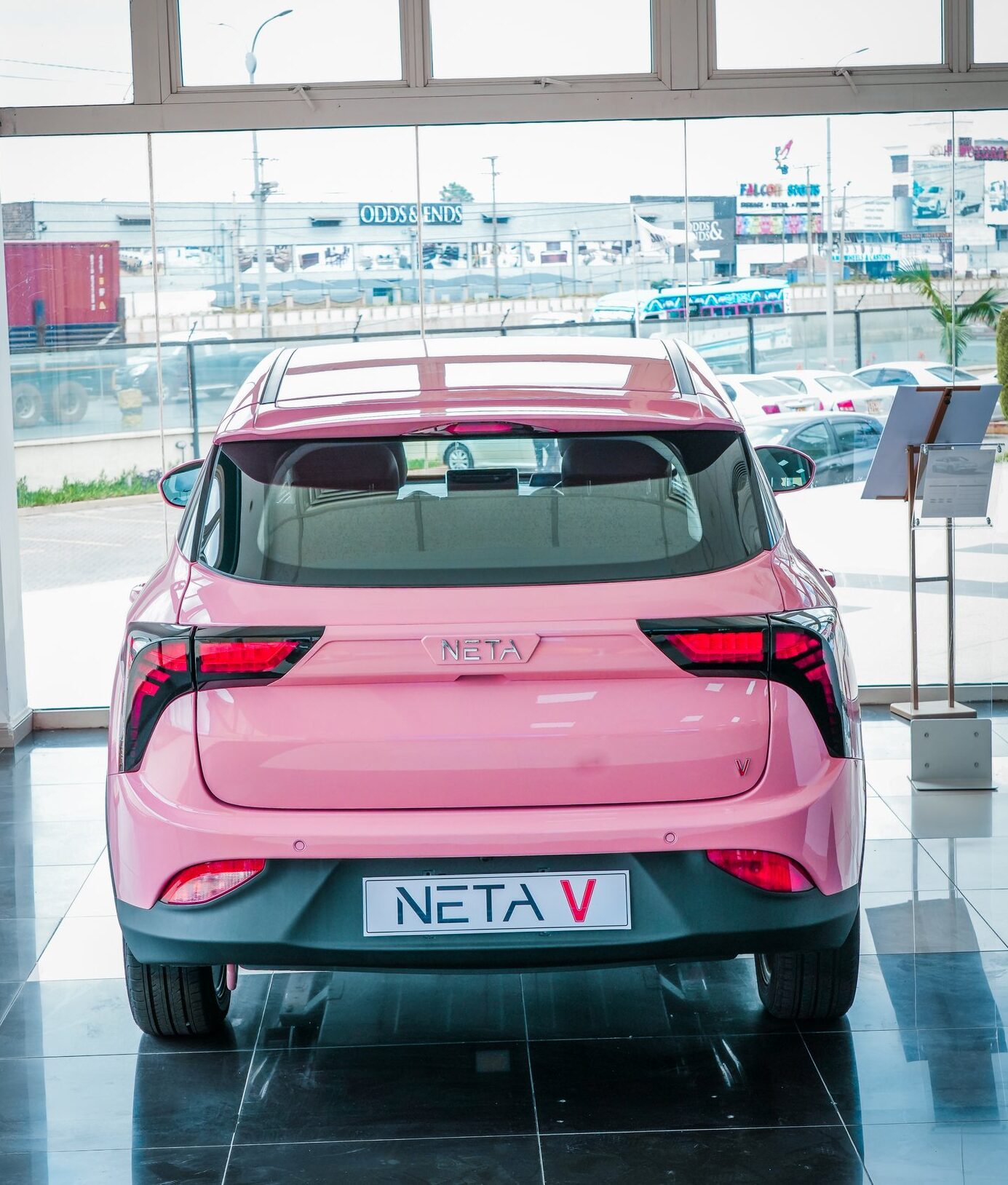Sign up for daily news updates from CleanTechnica on email. Or follow us on Google News!
Hydrogen fuel cell skeptics have been heating up the Intertubes, but the money just keeps flowing into new fuel cell ventures. In the latest sign of respect for the technology, the Turkish company Ford Otosan has embarked on a series of deals aimed at bringing its new F-Max heavy duty fuel cell truck to the European market.
The news follows hot on the heels that GM’s Hydrotec fuel cell division has entered the market for electric cement trucks and other heavy duty applications, so hold on to your hats.
The Ford F-Max Hydrogen Fuel Cell Truck Project
GM‘s recent activities in the hydrogen fuel cell area have crossed the CleanTechnica radar a number of times, including the company’s support for new green hydrogen technology.
The fuel cell journey of The Ford Motor Company has garnered somewhat less attention. A quick search its investor website yields little (as in, zero) hits under the key phrase “fuel cells.” Its commercial site autocorrects to search for “fuel wells,” which is not particularly helpful.
However, that doesn’t mean nothing is going on. Earlier this year, Ford let slip that its new E-Transit battery-powered electric delivery van — which is assembled in Turkey — will provide the platform for exploring the use of fuel cells in delivery fleets under a three-year trial period in the UK. The trial will focus on fleets that have limited access to battery charging infrastructure, with the idea that fuel cell vans can replace both diesel fuel and battery power.
“Test fleet data will provide insights into the total cost of owning and operating a large van, with increased range and operating hours to match its diesel-powered equivalent and without the need to charge,” Ford explained in a press release dated May 9.
From Delivery Vans To The F-Max Hydrogen Fuel Cell Trucks
Ford also has a hand in the hydrogen fuel cell vehicle business through Ford Otosan, a publicly traded firm in which The Ford Motor Company holds an equal 41% share with the Turkish holding company Koç Holding.
Ford Otosan certainly has not been letting the fuel cell grass grow under its feet. The E-Transit delivery van project has barely gotten under way and the company is already scaling up to the heavy duty fuel cell truck level.
On August 3, the legacy engineering firm Ballard Power Systems announced that it has partnered with the Ford Trucks division of Ford Otosan to supply a fuel cell system for the new F-Max prototype hydrogen fuel cell truck. The partnership includes an initial purchase order for two of Ballard’s “FCmove™-XD” 120-kilowatt fuel cell engines.
If all goes according to plan, the new truck will take its place alongside existing diesel vehicles in Otosan’s F-line, as a 44-ton long haul heavy-duty truck.
The new truck will also feature in the EU’s plans for decarbonizing its freight hauling industry.
“Ford Trucks plans to build and assemble the fuel cell-powered F-MAX in Turkey and aims to commence European Ten-T corridor demonstrations in 2025 as part of the European Union’s Horizon Europe ZEFES (Zero Emission Freight EcoSystem) project goals,” Ballard said.
As explained by Ballard, the ZEFES project will assess four fuel cell and five battery-powered electric trucks for freight hauling in real life conditions totaling more than 1 million kilometers. All vehicles are expected to achieve a range of up to 750 kilometers while hauling payloads of more than 40 metric tonnes.
Two More Steps Towards The Fuel Cell Truck Of The Future
On November 2, the German e-mobility firm Quantron AG stirred the fuel cell pot again, when it announced that it has signed a letter of intent with Ford Trucks to help get the F-Max fuel cell project up and running to the market.
“Within this strategic cooperation, the Quantron Inside technology effective range, innovative e-axle, customized high-power battery, fuel cell and tank integration, unparalleled energy-management and optimized Aerodynamics for maximized efficiency will be evaluated for integration into Ford Trucks’ vehicles, thus enabling emission-free transport solutions,” Quantron added.
Quantron is better known for its expertise in the battery-electric truck field, but the company expects to apply its knowledge base to fuel cell electric mobility.
In another new development, on December 7 the Norwegian firm Hexagon Purus announced that Ford Trucks has engaged it to deliver a hydrogen fuel storage system for the F-Max fuel cell truck, in support of the ZEFES project.
“We are using our in-depth knowledge of lightweight, reliable and safe hydrogen storage technology to help Ford Trucks pave the way for fuel-cell electric long-haul heavy-duty trucking in Europe,” enthused Hexagon EVP Michael Kleschinski.
The Green Hydrogen Angle
Of course, no story about a hydrogen fuel cell truck is complete without a mention of green hydrogen.
Until recently, fuel cell stakeholders have relied on a hydrogen fuel supply chain dominated by natural gas and other fossil resources. The emergence of low-cost renewable energy has changed the game, by providing an economical pathway for producing hydrogen from plain water (see more CleanTechnica green hydrogen coverage here).
Fossil energy still dominates the hydrogen supply chain, but Hexagon is among the many hydrogen stakeholders advocating for a transition to green hydrogen.
“The main barriers today are the limited availability of green hydrogen and an insufficient fuelling station network,” Hexagon CEO Morten Holum told the trade organization Hydrogen Council last spring. “So we need to work in concert as an industry to accelerate the production of green hydrogen and the availability of that hydrogen at the pump.”
Fuel Cell Trucks For The USA
The EU still seems intent on including fuel cell trucks in its decarbonization strategy, and activity continues to stir over here in the US, too.
Quantron recently announced plans to produce fuel cell trucks for the US market. The on-again, off-again saga of the US startup Nikola also took a turn for the better in September, when the company announced the official launch of its first commercial fuel cell electric truck (see lots more Nikola coverage here).
Then there’s GM. The company has a long term relationship with fuel cell technology, the latest example being a new collaboration with the firm Autocar to produce fuel cell cement trucks and other vehicles that fall into the “vocational” category.
“Hydrogen fuel cells are a key component of GM’s electrification strategy which extends beyond battery-powered passenger vehicles,” GE explains.
The company lists light weight, larger payloads, long range, and rapid refueling as advantages compared to battery-powered trucks, over and above the carbon footprint savings compared to diesel trucks.
If you have any thoughts about that, drop us a note in the comment thread.
Follow me @tinamcasey on Bluesky, Threads, Post, and LinkedIn.
Image: F-MAX zero emission fuel cell truck to be manufactured by the Turkish firm Ford Otosan.
Have a tip for CleanTechnica? Want to advertise? Want to suggest a guest for our CleanTech Talk podcast? Contact us here.
Our Latest EVObsession Video
I don’t like paywalls. You don’t like paywalls. Who likes paywalls? Here at CleanTechnica, we implemented a limited paywall for a while, but it always felt wrong — and it was always tough to decide what we should put behind there. In theory, your most exclusive and best content goes behind a paywall. But then fewer people read it!! So, we’ve decided to completely nix paywalls here at CleanTechnica. But…
Thank you!
CleanTechnica uses affiliate links. See our policy here.




